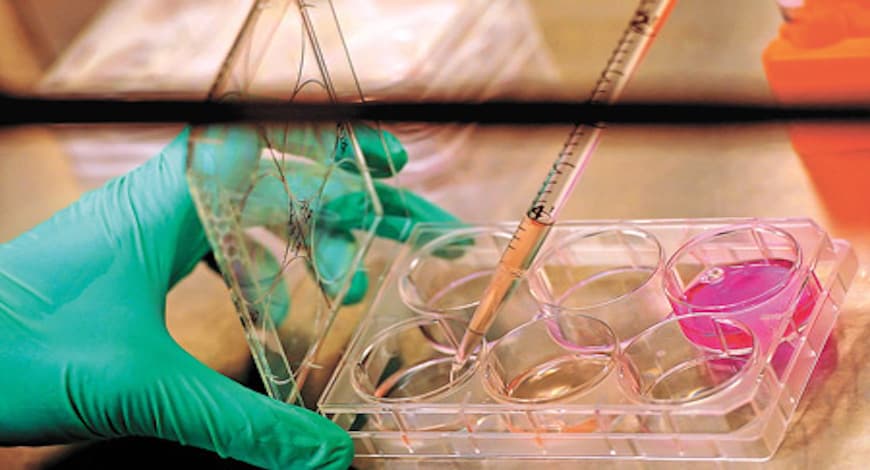
30-yr-old successfully treated for primary graft failure (bone marrow transplant) at HCG Cancer Centre
Graft failure after allogeneic hematopoietic cell transplantation (AHCT) occurs either due to lack of initial engraftment of donor cells or loss of donor cells after initial engraftment.
The cells that are transfused during a bone marrow transplant are called a graft. Graft failure happens when the new cells don?t make the new white blood cells, red blood cells, and platelets that are required. This is also called ?failure to engraft? or ?non-engraftment.? This is serious but uncommon. Graft failure after allogeneic hematopoietic cell transplantation (AHCT) occurs either due to lack of initial engraftment of donor cells or loss of donor cells after initial engraftment. It is a life-threatening complication of HCT and can be observed early post-transplant (primary, failure to establish hematologic engraftment) or late (loss of an established graft).
It is classically divided into primary or secondary graft failure. The risk factors associated with graft failure may be related to characteristics of the graft, the patient, type of disease, the donor, or the transplant procedure.
? Primary graft failure is defined as no evidence of engraftment or hematological recovery of donor cells, within the first month after transplant, without evidence of disease relapse.
? Secondary graft failure refers to the loss of a previously functioning graft, resulting in cytopenia involving at least two blood cell lineages.
Primary graft failure is usually associated with a more significant risk of morbidity and mortality in comparison with secondary graft failure.
Although the incidence of graft failure is relatively lower, when it occurs, it is a major complication associated with a dismal prognosis, particularly in recipients of alternative donor HSCT. It remains an important contributor to morbidity and mortality after allogeneic SCT.
Case Study:
Mukund (name changed), 30-year-old male who was earlier diagnosed with myelodysplastic syndrome, presented himself at the HCG Cancer Centre for further treatment. Myelodysplastic syndromes are a group of disorders caused due to poorly formed blood cells or ones that don?t work properly. They result from something amiss in the spongy material inside your bones where blood cells are made (bone marrow). The patient had CUX1 mutation. Initially, he was treated with azacitidine. Post that Dr Joydeep Chakraborty and his team planned for an allogeneic haploidentical stem cell transplant treatment as Mukund was young and fit. His sister was chosen as a donor. But after the transplant procedures, primary graft failure was witnessed and with no other option left, the patient underwent another transplant. This time his mother was selected as a donor as she was also a haploidentical match.
As this was an ultra-high risk transplant, doctors preferred to give him prophylaxis with pentamidine, foscarnet and defibrotide for PCP, CMV and SOS respectively. After the second transplant, timely and complete engraftment of erythroid, neutrophil and platelet was witnessed. Peri-transplant course was smooth except that he experienced cytokine release syndrome (CRS), which was managed with tocilizumab. The patient is healthy and fine today and has resumed normal routine now.
Primary graft failure poses a serious clinical challenge with relatively higher morbidity and mortality rates among the patients who have undergone BMT. However, early second HSCTs have shown encouraging results with a promise of long-term disease-free survival. An early second HSCT, as a rescue strategy, seems like an ideal choice for myelodysplastic syndrome patients who have witnessed primary graft failure during their treatment.
Specialists at HCG took Mukund?s case as a challenge and proceeded with the second transplant with another haploidentical match. Through high-end treatment protocols and stringent preventive measures, they made sure that this transplant would be a successful one. With the help of innovation, technological advancements and robust clinical expertise, HCG Cancer Centre has performed some of the most challenging medical procedures seamlessly in the last few months, whilst preserving the quality of life among the patients.